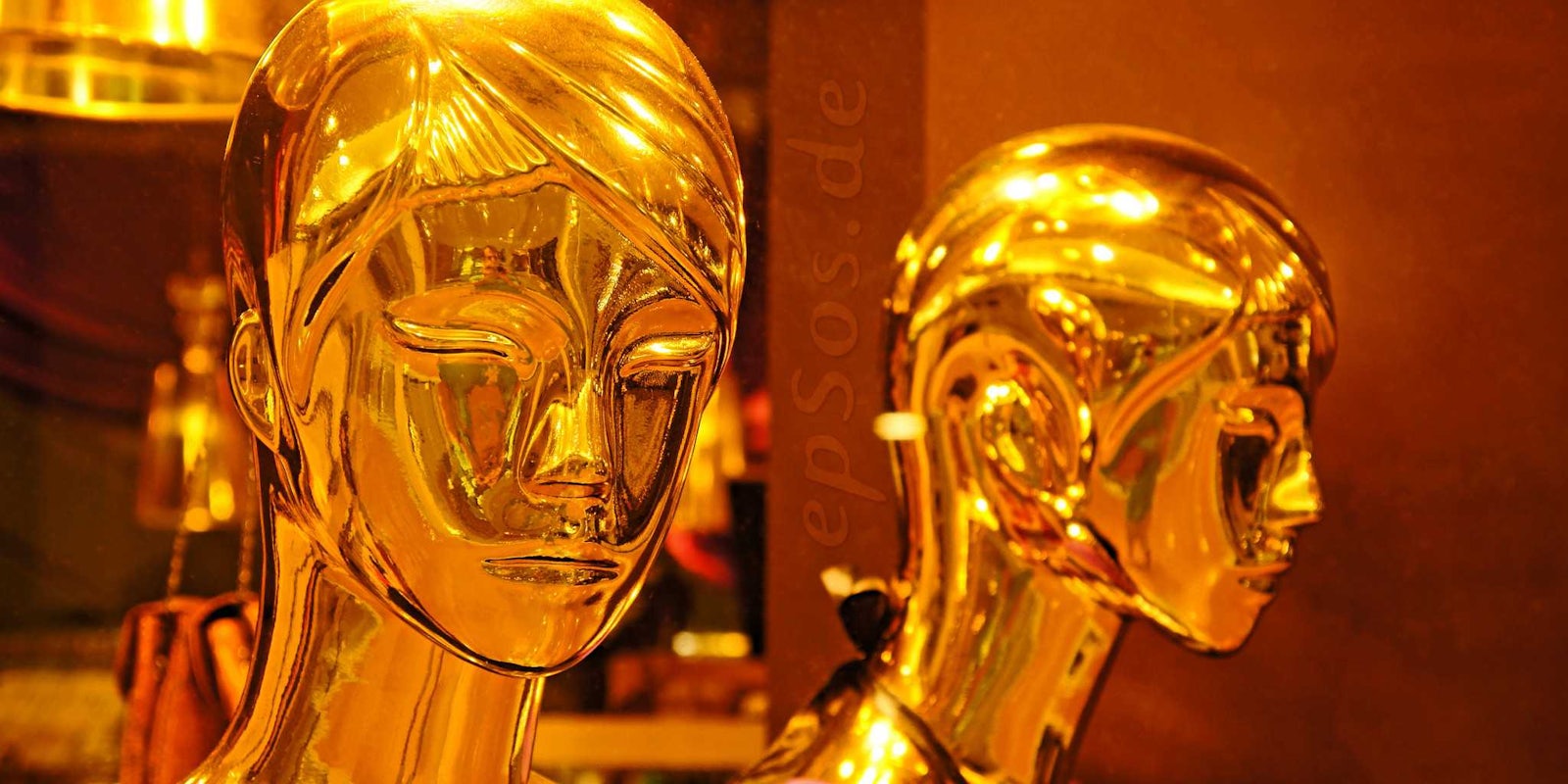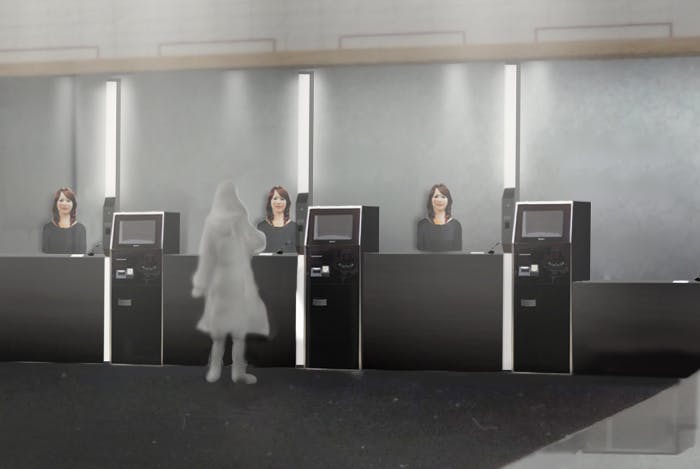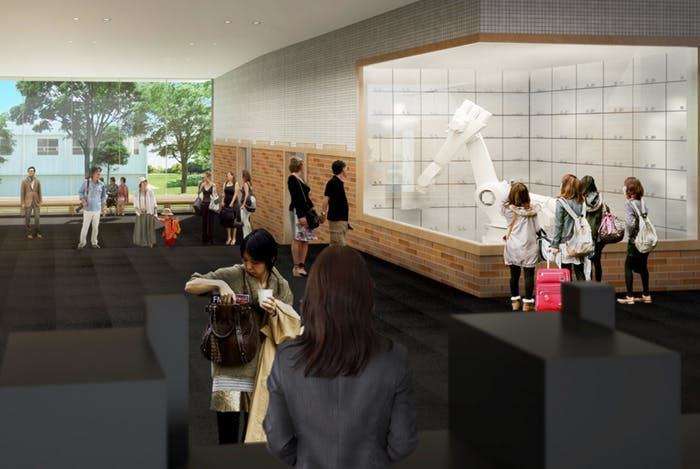A new hotel is being built in Japan. Which isn’t anything to get excited about—the staff will be the interesting part.
The Henn-Na Hotel, opening in Nagasaki this summer, will soon be able to offer visitors a very futuristic experience because it will be operated entirely by robots. Guests will check in at reception with a fully animated humanoid. Their rooms will be cleaned by non-living, non-breathing machines. Even brute strength robo-baggage-handlers will transport luggage to their rooms.
For some of you, this raises immediate questions about job-stealing robots or the machine uprising. Others are wondering how well this will actually work.
Well we got the word firsthand from some of the hotel’s representatives, who indulged our curiosities via email.
Where did the idea come from to use robots in the hotel?
Masahiko Hayasaka: We’ve already operated three “traditional hotels” in [a] theme park for more than four years, and we [were] surprised that the hotel industry is a very labor intensive industry. One day, we imagined [that] “Robot staff can innovate the industry!”
How many different types of robots does it take to run a hotel? Is each one specialized to its own task, or can they do many things?
MH: So far there are three specialized kinds of robots planed. Three humanoids by Kokoro Co., Ltd. for the front desk, two transport robots by Sharp for porter service, and some cleaning robots for shared and private space. Of course we plan to introduce new robots after opening.
Who designed and built them? Is it original technology?
MH: My understanding is these are quite original technologies for our hotel.
How drastically will a robot staff reduce costs?
MH: Our first target would be about 60 percent staff reduce.
Could a hotel eventually automate itself entirely?
MH: Our future vision is that 90 percent of staff work is engaged by robots.
Will it be a strange experience for guests?
MH: The name “Henn” has some play and joking in [the Japanese language]. We think that the word Henn means change and evolution, although I understand that normally Henn means strange.
Our first priority is offering comfort for the guests, not a strange experience.
Can we expect many more robot hotels in the future?
MH: Of course, yes! Our promise for the world is “A [commitment to] evolution.”
Photo via epsos/Flickr CC 2.0





